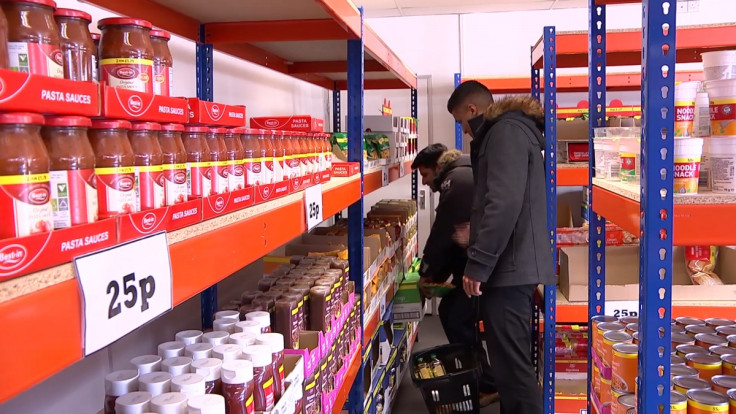EasyFoodstore will continue to shake up the market - just like Lidl and Aldi have done

How much would the average family of four like to pay for their weekly shop? What about £15? Surely, that's what dreams are made of. Well, this week easyFoodstore made that happen.
The brainchild of EasyJet founder Stelios Haji-Ioannou, this 'no-frills' food chain offers a long list of household essentials for just 25p, encompassing their mission statement 'no expensive brands, just food honestly priced'. In true Stelios fashion, this has and will continue to shake up the market and I applaud his innovative movement and the disruption it was always bound to create.
Just as he did with EasyJet, Stelios has cleverly emphasised the need for serving 'the less well-off' and managed to identify a service dedicated to this target audience. Previously, he created a market that enabled people who had never travelled before, to book a flight for the same price as a train fare.
With his easyGym chain, he aided those avoiding extortionate membership fees to manage their own subscription, based on what and how often they could pay. By commoditising the 'extra bits' Stelios has a create a system that allows his money-conscious customer to strip back and really get down to basics and now, his food stores will do just that; enabling families with limited financial benefit to stock up on staple foods.
The discount culture continues to flourish, initially introduced by the likes of Lidl and Aldi whose discounted goods forced their competitors to drop their prices. But with the introduction of easyFoodstore, how do we begin to define real good value for money and, is budget always best?
A lot of businesses who rely on the quality of their customer service and amenities to attract customers may struggle with the proliferation of discount culture. Even as a more 'highly regarded' supermarket chain, Waitrose have realised they need to step up their game and recently unveiled a new scheme allowing customers to pick their own offers, dependent on their most-bought items.
I believe great service will always serve a purpose in this market as it offers a completely different, professional experience. So although pricing strategies may need altering, a happy shopping experience could be just as important, and it completely depends on personal buying preferences.
Everyone loves a bargain, and if you can go and get your tea, sugar, pasta, and coffee for a total of 75p, why wouldn't you? It seems like a no-brainer.
Competition in the market is always good, it forces businesses to stay on top of their game and continually ensure their own USP is visible and they are embracing creativity and innovation; two prerequisites for any business looking to make a splash in the market. However, it's difficult not to question the importance and role quality has to play and how this is compromised before we begin to embrace this new standard, as consumers.
As a businessman, I automatically question pricing, how is it possible to make a profit from such a low pricing structure? Every business wants to make money and Stelios isn't any different, but when you take into account the several different facets involved in every product pricing structure, a retail price of 25p seems ludicrous.
There are unavoidable costs before retailing any product. Delivery and packaging costs, setting margins for manufacturers, retailers and wholesalers... think about how much this would equate to in total and you'll understand why making a profit from 25p seems inconceivable. Naturally, this leads to a lot of questioning surrounding quality of goods and whether such budget foods result in unattractive alternative implications.
So, is a £15 weekly shop really worth it if it means damaging our health? With the UK obesity crisis evermore prominent, we need to ask ourselves what's more important, our fitness levels or our ability to save more money?
This is a doubl- edged sword. Whilst on one hand I cannot condone the potential health risks, I can also see why demand for cheap or 'honestly priced' dried foods is so high. Today we heard the first easyFoodstore had to close just days after first opening due to a severe stock shortage – I can't think of a better way to illustrate the obvious demand in this market.
Whenever I meet anybody starting a business, I always stress the importance of genuine demand. The fact the store run out of stock after serving thousands of customers within two days proves that this is a movement people want to see, and they are welcoming it with open arms.
Is this extreme diversification what we need? It certainly won't be for everyone but I personally think it's great to see a fresh-faced competitor looking to take the market by storm.
James Caan CBE is founder and CEO of Hamilton Bradshaw, a venture capital firm based in Mayfair, and a former panellist on BBC series Dragons' Den.
© Copyright IBTimes 2025. All rights reserved.






















